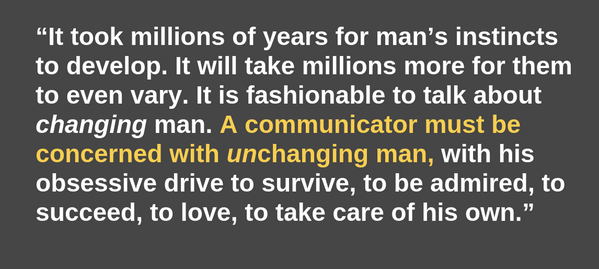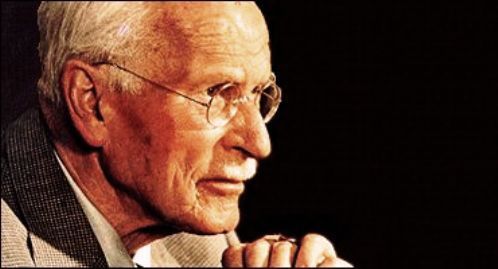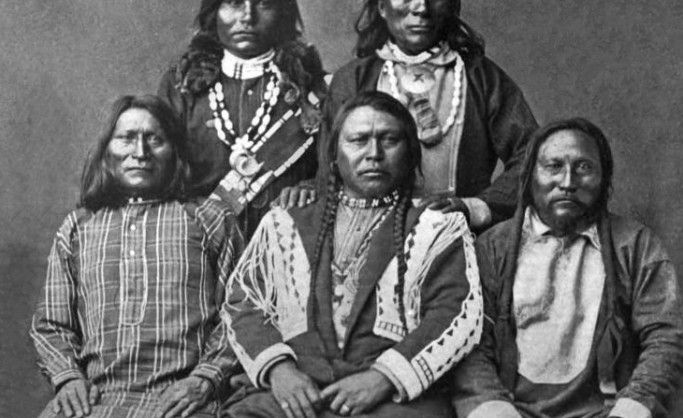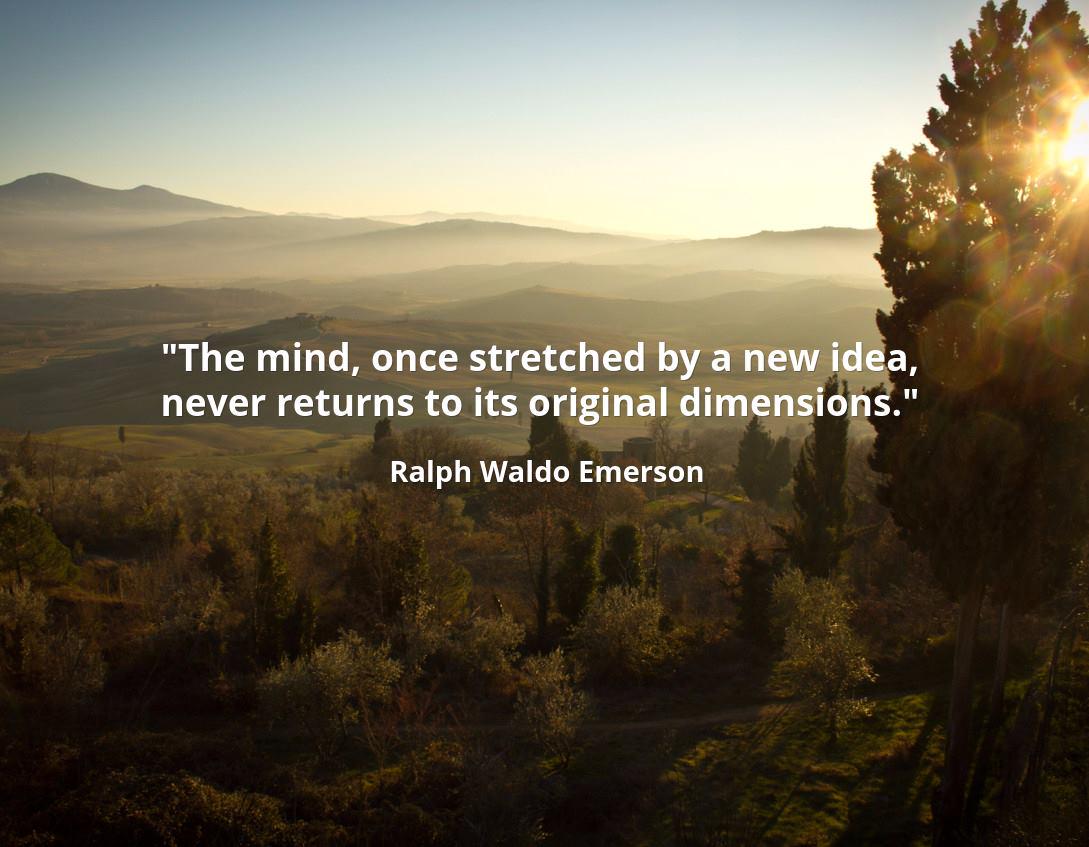Transcribed from The Strangest Secret audio program by Earl NightingaleSome
years ago, the late Nobel prize-winning Dr. Albert Schweitzer was asked
by a reporter, “Doctor, what’s wrong with men today?” The great doctor
was silent a moment, and then he said, “Men simply don’t think!”
It’s
about this that I want to talk with you. We live today in a golden age.
This is an era that humanity has looked forward to, dreamed of, and
worked toward for thousands of years. We live in the richest era that
ever existed on the face of the earth … a land of abundant opportunity
for everyone.
However, if you take 100 individuals who start even
at the age of 25, do you have any idea what will happen to those men
and women by the time they’re 65? These 100 people believe they’re going
to be successful. They are eager toward life, there is a certain
sparkle in their eye, an erectness to their carriage, and life seems
like a pretty interesting adventure to them.
But by the time
they’re 65, only one will be rich, four will be financially independent,
five will still be working, and 54 will be broke and depending on
others for life’s necessities.
Only five out of 100 make the
grade! Why do so many fail? What has happened to the sparkle that was
there when they were 25? What has become of the dreams, the hopes, the
plans … and why is there such a large disparity between what these
people intended to do and what they actually accomplished?
THE DEFINITION OF SUCCESS
First, we have to define success and here is the best definition I’ve ever been able to find:
“Success is the progressive realization of a worthy ideal.”
A
success is the school teacher who is teaching because that’s what he or
she wants to do. A success is the entrepreneur who start his own
company because that was his dream and that’s what he wanted to do. A
success is the salesperson who wants to become the best salesperson in
his or her company and sets forth on the pursuit of that goal.
A
success is anyone who is realizing a worthy predetermined ideal, because
that’s what he or she decided to do … deliberately. But only one out of
20 does that! The rest are “failures.”
Rollo May, the
distinguished psychiatrist, wrote a wonderful book called Man’s Search
for Himself, and in this book he says: “The opposite of courage in our
society is not cowardice … it is conformity.” And there you have the
reason for so many failures. Conformity and people acting like everyone
else, without knowing why or where they are going.
We learn to
read by the time we’re seven. We learn to make a living by the time
we’re 30. Often by that time we’re not only making a living, we’re
supporting a family. And yet by the time we’re 65, we haven’t learned
how to become financially independent in the richest land that has ever
been known. Why? We conform! Most of us are acting like the wrong
percentage group and the 95 who don’t succeed.
GOALS
Have
you ever wondered why so many people work so hard and honestly without
ever achieving anything in particular, and why others don’t seem to work
hard, yet seem to get everything? They seem to have the “magic touch.”
You’ve heard people say, “Everything he touches turns to gold.” Have you
ever noticed that a person who becomes successful tends to continue to
become more successful? And, on the other hand, have you noticed how
someone who’s a failure tends to continue to fail?
The difference is goals.
People with goals succeed because they know where they’re going. It’s that simple.
Failures, on the other hand, believe that their lives are shaped by
circumstances … by things that happen to them … by exterior forces.
Think
of a ship with the complete voyage mapped out and planned. The captain
and crew know exactly where the ship is going and how long it will take
and it has a definite goal. And 9,999 times out of 10,000, it will get
there.
Now let’s take another ship and just like the first and
only let’s not put a crew on it, or a captain at the helm. Let’s give it
no aiming point, no goal, and no destination. We just start the engines
and let it go. I think you’ll agree that if it gets out of the harbor
at all, it will either sink or wind up on some deserted beach and a
derelict. It can’t go anyplace because it has no destination and no
guidance.
It’s the same with a human being. However, the human
race is fixed, not to prevent the strong from winning, but to prevent
the weak from losing. Society today can be likened to a convoy in time
of war. The entire society is slowed down to protect its weakest link,
just as the naval convoy has to go at the speed that will permit its
slowest vessel to remain in formation.
That’s why it’s so easy to
make a living today. It takes no particular brains or talent to make a
living and support a family today. We have a plateau of so-called
“security.” So, to succeed, all we must do is decide how high above this
plateau we want to aim.
Throughout history, the great wise men
and teachers, philosophers, and prophets have disagreed with one another
on many different things. It is only on this one point that they are in
complete and unanimous agreement and the key to success and the key to
failure is this:
WE BECOME WHAT WE THINK ABOUT
This
is The Strangest Secret! Now, why do I say it’s strange, and why do I
call it a secret? Actually, it isn’t a secret at all. It was first
promulgated by some of the earliest wise men, and it appears again and
again throughout the Bible. But very few people have learned it or
understand it. That’s why it’s strange, and why for some equally strange
reason it virtually remains a secret.
Marcus Aurelius, the great Roman Emperor, said: “A man’s life is what his thoughts make of it.”
Disraeli said this:
“Everything comes if a man will only wait … a human being with a
settled purpose must accomplish it, and nothing can resist a will that
will stake even existence for its fulfillment.”
William
James said: “We need only in cold blood act as if the thing in question
were real, and it will become infallibly real by growing into such a
connection with our life that it will become real. It will become so
knit with habit and emotion that our interests in it will be those which
characterize belief.”
He continues, ” … only you must, then, really wish these things, and
wish them exclusively, and not wish at the same time a hundred other
incompatible things just as strongly.”
My old friend Dr. Norman Vincent Peale put it this way:
“If you think in negative terms, you will get negative results. If you
think in positive terms, you will achieve positive results.”
George Bernard Shaw said: “People are always blaming their circumstances
for what they are. I don’t believe in circumstances. The people who get
on in this world are the people who get up and look for the
circumstances they want, and if they can’t find them, make them.”
Well, it’s pretty apparent, isn’t it? We become what we think about.
A person who is thinking about a concrete and worthwhile goal is going to reach it, because that’s what he’s thinking about.
Conversely, the person who has no goal, who doesn’t know where he’s
going, and whose thoughts must therefore be thoughts of confusion,
anxiety, fear, and worry will thereby create a life of frustration,
fear, anxiety and worry. And if he thinks about nothing … he becomes
nothing.
AS YE SOW, SO SHALL YE REAP
The human mind is much like a
farmer’s land. The land gives the farmer a choice. He may plant in that
land whatever he chooses. The land doesn’t care what is planted. It’s
up to the farmer to make the decision.
The mind, like the land, will return what you plant, but it doesn’t care
what you plant. If the farmer plants too seeds and one a seed of corn,
the other nightshade, a deadly poison, waters and takes care of the
land, what will happen?
Remember, the land doesn’t care. It will
return poison in just as wonderful abundance as it will corn. So up come
the two plants and one corn, one poison as it’s written in the Bible,
“As ye sow, so shall ye reap.”
The
human mind is far more fertile, far more incredible and mysterious than
the land, but it works the same way. It doesn’t care what we plant … success … or failure. A concrete, worthwhile goal … or confusion, misunderstanding, fear, anxiety, and so on. But what we plant it must return to us.
The
problem is that our mind comes as standard equipment at birth. It’s
free. And things that are given to us for nothing, we place little value
on. Things that we pay money for, we value.
The paradox is that exactly the reverse is true.
Everything that’s really worthwhile in life came to us free and our
minds, our souls, our bodies, our hopes, our dreams, our ambitions, our
intelligence, our love of family and children and friends and country.
All these priceless possessions are free.
But the things that
cost us money are actually very cheap and can be replaced at any time. A
good man can be completely wiped out and make another fortune. He can
do that several times. Even if our home burns down, we can rebuild it.
But the things we got for nothing, we can never replace.
Our
mind can do any kind of job we assign to it, but generally speaking, we
use it for little jobs instead of big ones. So decide now. What is it
you want? Plant your goal in your mind. It’s the most important decision
you’ll ever make in your entire life.
Do you want to
excel at your particular job? Do you want to go places in your company …
in your community? Do you want to get rich?
All you have got
to do is plant that seed in your mind, care for it, work steadily
toward your goal, and it will become a reality.
It not
only will, there’s no way that it cannot. You see, that’s a law and like
the laws of Sir Isaac Newton, the laws of gravity. If you get on top of
a building and jump off, you’ll always go down and you’ll never go up.
And it’s the same with all the other laws of nature. They always work. They’re inflexible.
Think about your goal in a relaxed, positive way.
Picture yourself in your mind’s eye as having already achieved this goal.
See yourself doing the things you will be doing when you have reached your goal.
Every one of us is the sum total of our own thoughts.
We are where we are because that’s exactly where we really want or feel we deserve to be and whether we’ll admit that or not.
Each of us must
live off the fruit of our thoughts in the future, because what you think
today and tomorrow and next month and next year and will mold your life
and determine your future. You’re guided by your mind.
I
remember one time I was driving through e a s t e r n Arizona and I saw
one of those giant earthmoving machines roaring along the road with
what looked like 30 tons of dirt in it and a tremendous, incredible
machine and and there was a little man perched way up on top with the
wheel in his hands, guiding it. As I drove along I was struck by the
similarity of that machine to the human mind.
Just suppose you’re sitting at the controls of such a vast source of
energy. Are you going to sit back and fold your arms and let it run
itself into a ditch? Or are you going to keep both hands firmly on the
wheel and control and direct this power to a specific, worthwhile
purpose?
It’s up to you. You’re in the driver’s seat.
You see, the
very law that gives us success is a double-edged sword. We must control
our thinking. The same rule that can lead people to lives of success,
wealth, happiness, and all the things they ever dreamed of and that very
same law can lead them into the gutter. It’s all in how they use it …
for good or for bad.
That is The Strangest Secret!
Do what the experts since the dawn of recorded history have told us to do: pay the price, by becoming the person you want to become.
It’s not nearly as difficult as living unsuccessfully.
The
moment you decide on a goal to work toward, you’re immediately a
successful person and you are then in that rare group of people who know
where they’re going.
Out of every hundred people, you belong to the top five.
Don’t concern
yourself too much with how you are going to achieve your goal and leave
that completely to a power greater than yourself.
All you have to do is know where you’re going. The answers will come to you of their own accord, and at the right time.
Start today. You have nothing to lose and but you have your whole life to win.
30-DAY ACTION IDEAS FOR PUTTING THE STRANGEST SECRET TO WORK FOR YOU
For the next 30-days follow each of these steps every day until you have achieved your goal.
1. Write on a card what it is you want more that anything else.
It may be more money. Perhaps you’d like to double your income or make a
specific amount of money. It may be a beautiful home. It may be success
at your job. It may be a particular position in life. It could be a
more harmonious family.
Write down on your card specifically what it is you want. Make sure it’s a single goal and clearly defined. You
needn’t show it to anyone, but carry it with you so that you can look
at it several times a day. Think about it in a cheerful, relaxed,
positive way each morning when you get up, and immediately you have
something to work for and something to get out of bed for, something to
live for.
Look at it every chance you get during the day and just before going to bed at night. As
you look at it, remember that you must become what you think about, and
since you’re thinking about your goal, you realize that soon it will be
yours. In fact, it’s really yours the moment you write it down and
begin to think about it.
2. Stop thinking about what it is you fear.
Each time a fearful or negative thought comes into your mind, replace it
with a mental picture of your positive and worthwhile goal. And there
will come a time when you’ll feel like giving up. It’s easier for a
human being to think negatively than positively. That’s why only five
percent are successful! You must begin now to place yourself in that
group.
“Act as though it were impossible to fail,” as Dorothea
Brande said. No matter what your goal and if you’ve kept your goal
before you every day and you’ll wonder and marvel at this new life
you’ve found.
3. Your success will always be measured by the quality and quantity of service you render.
Most people will tell you that they want to make money, without
understanding this law. The only people who make money work in a mint.
The rest of us must earn money. This is what causes those who keep
looking for something for nothing, or a free ride, to fail in life.
Success is not the result of making money; earning money is the result
of success and and success is in direct proportion to our service.Most people have this law backwards. It’s like the man who stands in front of the stove and says to it: “
Give me heat and then I’ll add the wood.”
How many men and women do you know, or do you suppose there are today,
who take the same attitude toward life? There are millions.
We’ve got to put the fuel in before we can expect heat. Likewise, we’ve got to be of service first before we can expect money.
Don’t concern yourself with the money. Be of service … build … work …
dream … create! Do this and you’ll find there is no limit to the
prosperity and abundance that will come to you.
Don’t start your
test until you’ve made up your mind to stick with it. If you should fail
during your first 30 days and by that I mean suddenly find yourself
overwhelmed by negative thoughts and simply start over again from that
point and go 30 more days. Gradually, your new habit will form, until
you find yourself one of that wonderful minority to whom virtually
nothing is impossible.
Above all … don’t worry! Worry brings fear, and fear is crippling. The only thing that can cause you to worry during your test is trying to do it all yourself
. Know that all you have to do is hold your goal before you; everything else will take care of itself.Take
this 30-day test, then repeat it … then repeat it again. Each time it
will become more a part of you until you’ll wonder how you could have
ever have lived any other way. Live this new way and the floodgates of
abundance will open and pour over you more riches than you may have
dreamed existed. Money? Yes, lots of it. But what’s more important,
you’ll have peace … you’ll be in that wonderful minority who lead calm,
cheerful, successful lives.
Learn more about
Earl Nightingale and his many timeless books and audio programs.
The Strangest Secret









 HASKAP
is the Japanese name for Lonicera caerulea. It has also been known as
‘Blue Honeysuckle’, ‘Honeyberry’, ‘Edible Honeysuckle’ and ‘Sweet Berry
Honeysuckle’. When translated into English, it is sometimes spelled as
Hascap, Haskaap and Hasukappu.
HASKAP
is the Japanese name for Lonicera caerulea. It has also been known as
‘Blue Honeysuckle’, ‘Honeyberry’, ‘Edible Honeysuckle’ and ‘Sweet Berry
Honeysuckle’. When translated into English, it is sometimes spelled as
Hascap, Haskaap and Hasukappu.


